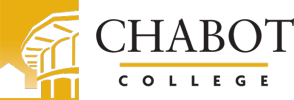PHIL 50 or PHIL 60 (Choose one)
3 units
Terms Offered: Spring, Fall
PHIL
50
Introduction to Philosophy
PHIL
50
Introduction to Philosophy
3 units
Introductory course in philosophy. Philosophy is an activity rather than a set of beliefs. It is thinking critically, systematically, and creatively about fundamental and important questions about knowledge, values, and reality that include the following and more: What do I know, and how do I know it? What is justice? Does God exist? Do I have free will? What is the nature of the mind and self?
Course Details:Transfers to CSU
Terms Offered: Spring, Fall - Eligibility for: ENGL 1A or
- Eligibility for: ENGL 1
or
PHIL
60
Ethics
PHIL
60
Ethics
3 units
This is an introductory course in ethics. To study ethics is to think critically about morality, and address questions like: What is justice? Are there universal, absolute, or objective moral rules? Is human nature inherently good or evil? What’s the relationship between moral responsibility and free will? This course examines several competing, historically important, and still prominent theoretical approaches to ethics, including Kant’s deontology, Mill’s utilitarianism, and Aristotle’s virtue ethics. These theories will be applied to contemporary moral problems, including those stemming from wealth inequality, artificial intelligence, the treatment of animals, and the limits of free speech.
Course Details:Transfers to CSU
Terms Offered: Fall, Spring - Strongly Recommended: ENGL 1
